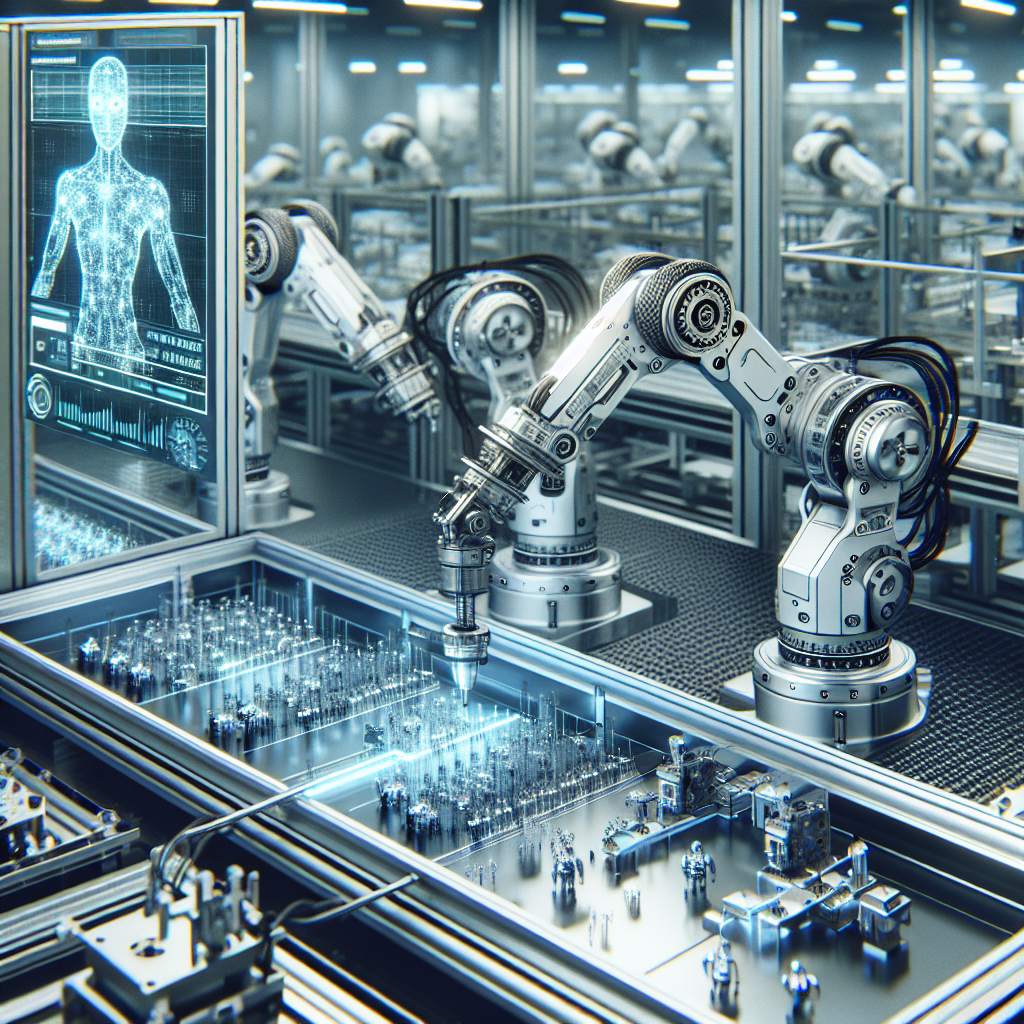In recent years, the manufacturing industry has seen significant advancements in the use of artificial intelligence (AI) and collaborative robots to improve precision and efficiency in production processes. These technologies have revolutionized the way companies produce goods, leading to higher quality products, increased productivity, and reduced costs. In this article, we will explore the role of AI and collaborative robots in precision manufacturing and how they are transforming the industry.
AI in Precision Manufacturing
AI has become an integral part of precision manufacturing, enabling companies to optimize their production processes and achieve higher levels of accuracy and efficiency. AI systems are capable of analyzing vast amounts of data in real-time, identifying patterns and trends that humans may not be able to detect. This allows manufacturers to make more informed decisions and improve the overall quality of their products.
One of the key ways AI is being used in precision manufacturing is through predictive maintenance. By analyzing data from sensors and other sources, AI systems can predict when a machine is likely to fail and schedule maintenance before it occurs. This helps companies avoid costly downtime and ensures that production processes run smoothly.
AI is also being used to optimize production schedules and improve inventory management. By analyzing historical data and current market trends, AI systems can help companies streamline their production processes and reduce waste. This leads to higher levels of efficiency and lower production costs.
Another area where AI is making a big impact in precision manufacturing is in quality control. AI systems are able to detect defects and anomalies in products with a high level of accuracy, helping manufacturers ensure that only high-quality products are shipped to customers. This not only improves customer satisfaction but also reduces the risk of costly recalls.
Collaborative Robots in Precision Manufacturing
Collaborative robots, also known as cobots, are another technology that is revolutionizing precision manufacturing. Unlike traditional industrial robots, which are typically large and stationary, cobots are designed to work alongside humans in a shared workspace. This makes them ideal for tasks that require a high level of precision and flexibility.
Cobots are being used in a wide range of applications in precision manufacturing, from assembly and pick-and-place tasks to welding and painting. Their ability to work collaboratively with humans makes them highly versatile and adaptable to different production environments.
One of the key benefits of cobots is their ease of programming. Unlike traditional robots, which require specialized programming skills to set up and operate, cobots can be easily programmed by non-experts using intuitive interfaces. This allows companies to quickly deploy cobots in their production processes and adapt them to changing needs.
Cobots are also designed to be safe to work alongside humans. They are equipped with sensors and other safety features that enable them to detect and avoid collisions with humans and other objects in their environment. This makes them ideal for tasks that require close collaboration between humans and machines.
FAQs
Q: What are the key benefits of using AI in precision manufacturing?
A: AI enables manufacturers to optimize production processes, improve quality control, and reduce costs. It can also help companies predict when machines are likely to fail and schedule maintenance before it occurs, leading to less downtime and higher productivity.
Q: How are collaborative robots transforming precision manufacturing?
A: Collaborative robots are revolutionizing precision manufacturing by enabling companies to automate tasks that require a high level of precision and flexibility. They are easy to program, safe to work alongside humans, and can be quickly deployed in different production environments.
Q: What are some common applications of cobots in precision manufacturing?
A: Cobots are being used in a wide range of applications, including assembly, pick-and-place tasks, welding, and painting. Their ability to work collaboratively with humans makes them ideal for tasks that require a high level of precision and adaptability.
In conclusion, AI and collaborative robots are transforming precision manufacturing by enabling companies to optimize production processes, improve quality control, and reduce costs. These technologies are revolutionizing the industry and are likely to play an increasingly important role in the future. Companies that embrace AI and cobots are likely to gain a competitive edge and stay ahead of the curve in the rapidly evolving manufacturing landscape.

